Gods and Mortals - MDNY
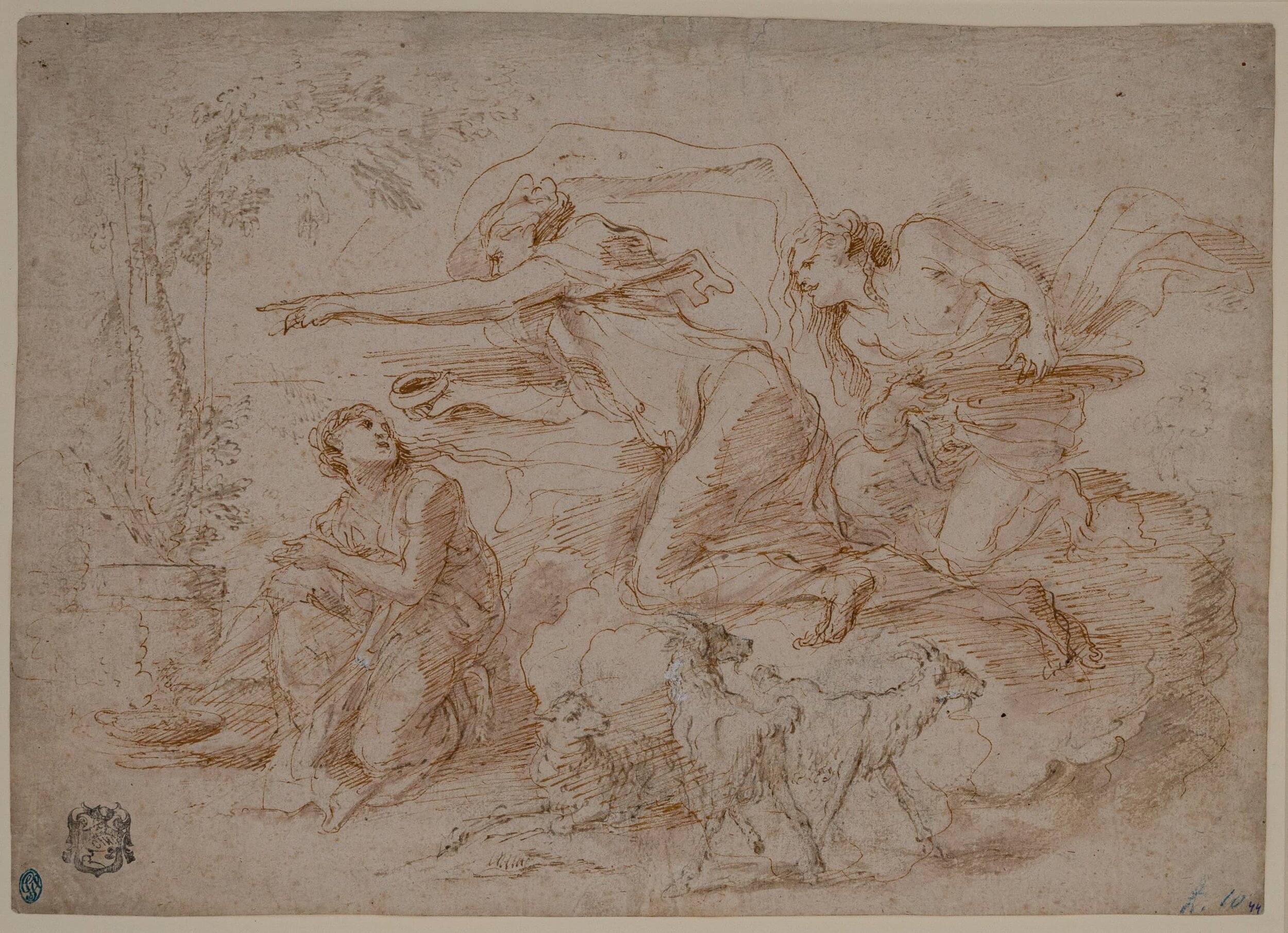
GIOVANNI BENEDETTO CASTIGLIONE, Genoa 1609-1664 Mantua;
Two Women appearing to a Woman near a Burning Altar
Pen and Sepia ink, with brushed grey wash,
257 x 362 mm (10 ⅛ x 14 ¼ in)
-break-
Ovid’s Metamorphosis, Book 8: 260-328
“King Oeneus of Calydon, they say, made offerings, from the successful harvests of a full year, of the first fruits of the crops to Ceres, of wine to Bacchus, ‘the deliverer from care’, of libations of flowing oil, from the olives, to golden Minerva. The honour they desire was paid to all the gods, beginning with the rural deities: only the daughter of Latona’s altar was passed by: neglected, it is said, and left without its incense. Anger even touches the gods. ‘I shall not suffer this without exacting punishment’ she cried ‘and, though not honoured, it will not be said that I was un-avenged.’”
Baroque Brilliance - Castiglione: draughtsman and graphic artist
https://www.youtube.com/embed/fuVK1LS63TM?autoplay=1
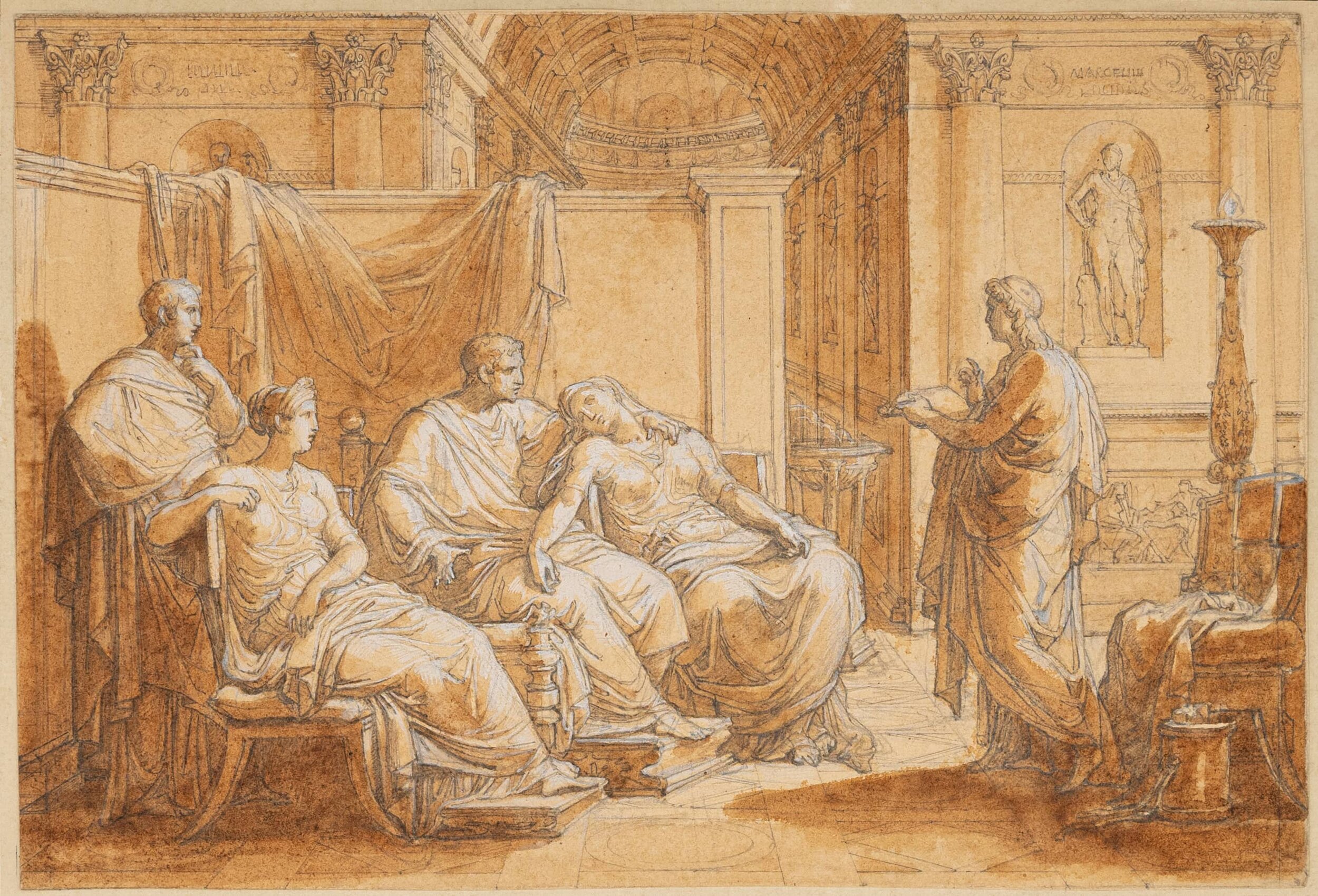
VINCENZO CAMUCCINI, Rome, 1771-1844;
Virgil Reading the Aeneid to August, Livia, and Octavia
Pen and ink and wash, with white gouache heightening
210 x 308 mm (8 ¼ x 12 ⅛ in)
-break-
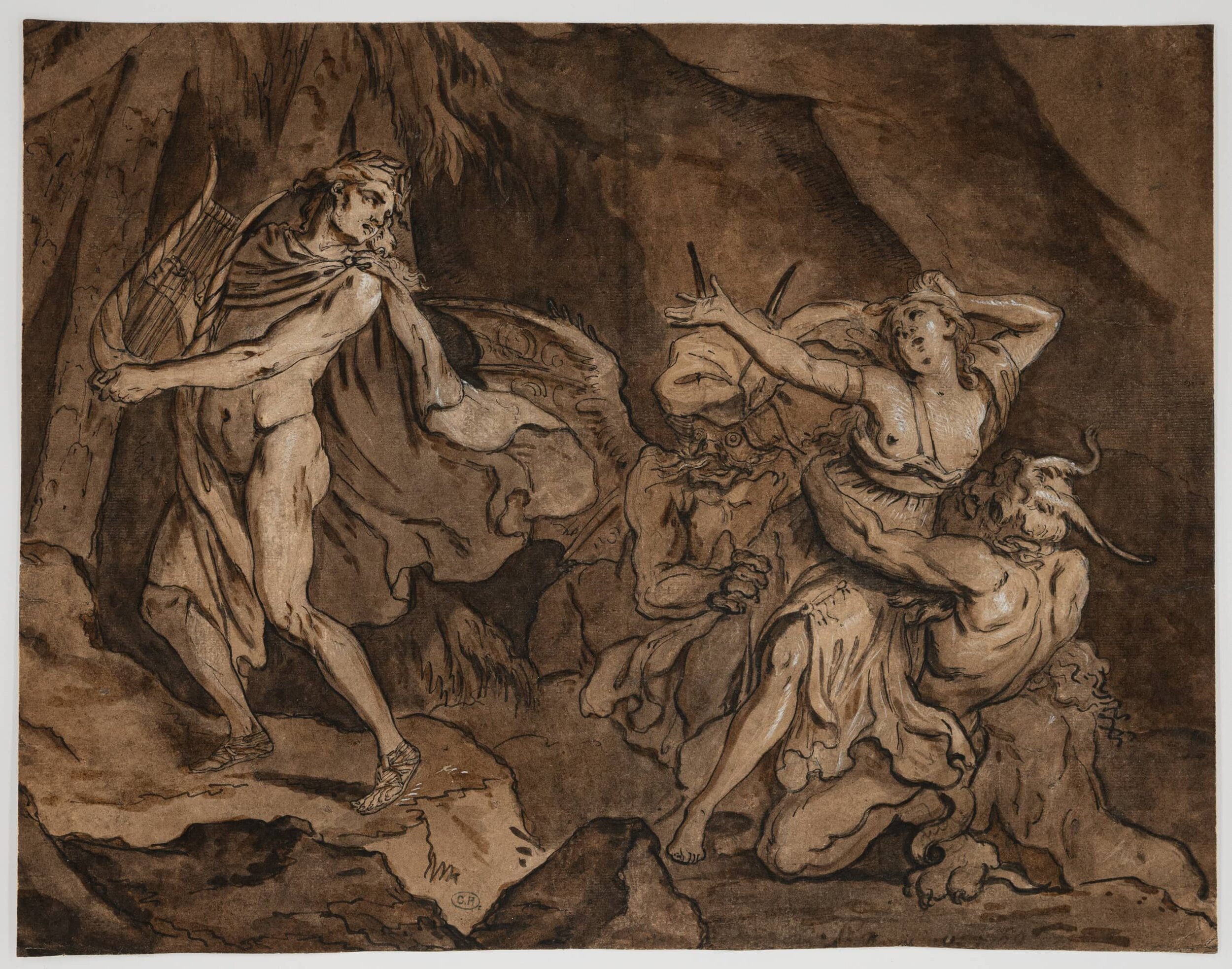
CLAUDE LOUIS DESRAIS, Paris, 1746-1816;
Orpheus Looks Back at Eurydice
Pen and brown ink with wash, heightened with white
342 x 440 mm (13 ½ x 17 ⅜ in)
-break-
“And now returning he had escaped all dangers; and his restored Eurydice was coming to the upper air following behind; for Prosepina had given those conditions: when a sudden madness seized the unwary lover, pardonable however, did the Manes know how to pardon. He stopped, and now, even at the confines of light (thoughtless alas!) and deprived of understanding, he looked back at his Eurydice: there all his labour vanished, and the conditions of the cruel tyrant were broken and a groan was thrice heard in the Avernian lake.”
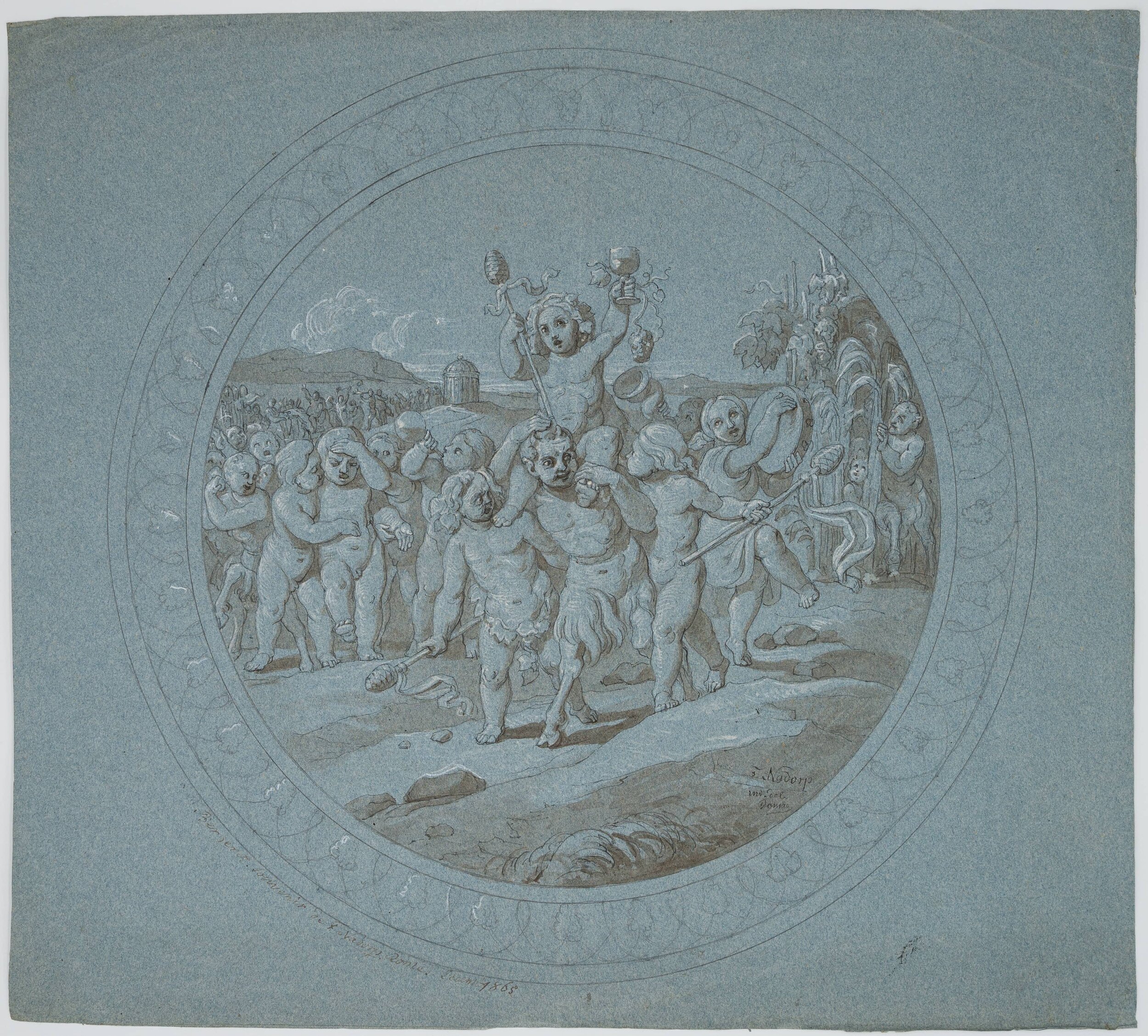
FRANZ JOHANN HEINRICH NADORP, Isselburg 1794 -1876 Rome;
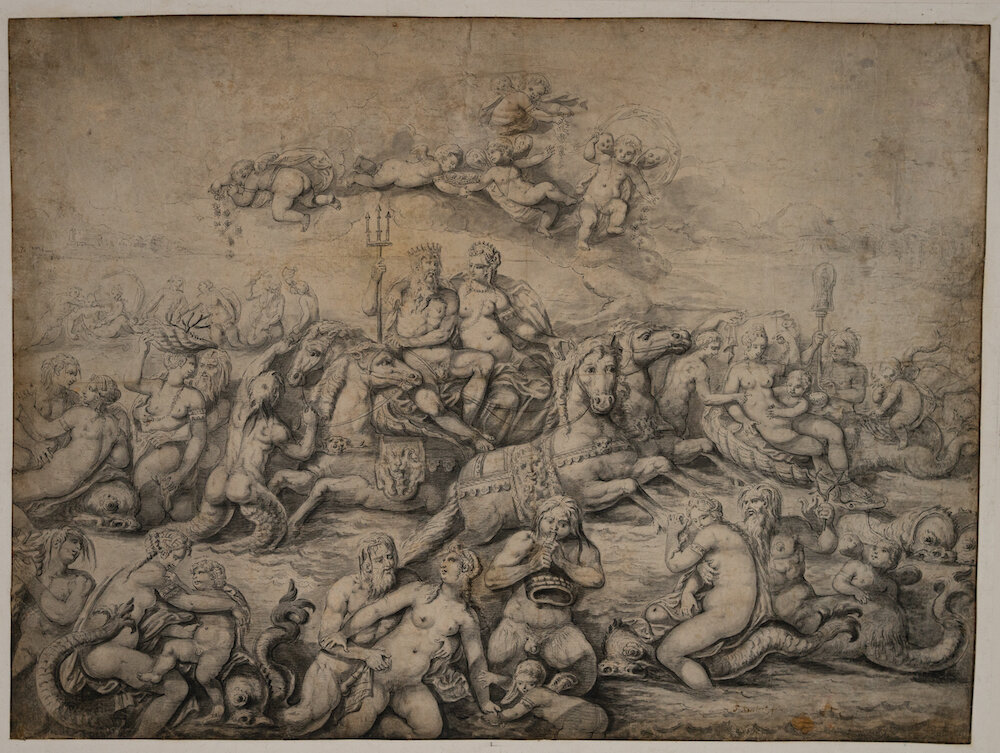
FRANCOIS BOITARD, Toulouse 1670-1715 Amsterdam;
The Triumph of Neptune and Amphitrite (Venus?)
Pen and black ink over black chalk on vellum
395 x 535 mm (15 ½ x 21 ⅛ in)
-break-
The Triumph of Neptune and Amphitrite
Amphitrite
De rerum natura
Nicolas Poussin: The Birth of Venus
“It's easier to avoid the snares of love than to escape once you are in that net whose cords and knots are strong; but even so, enmeshed, entangled, you can still get out unless, poor fool, you stand in your own way.”
Lucretius, The Way Things Are
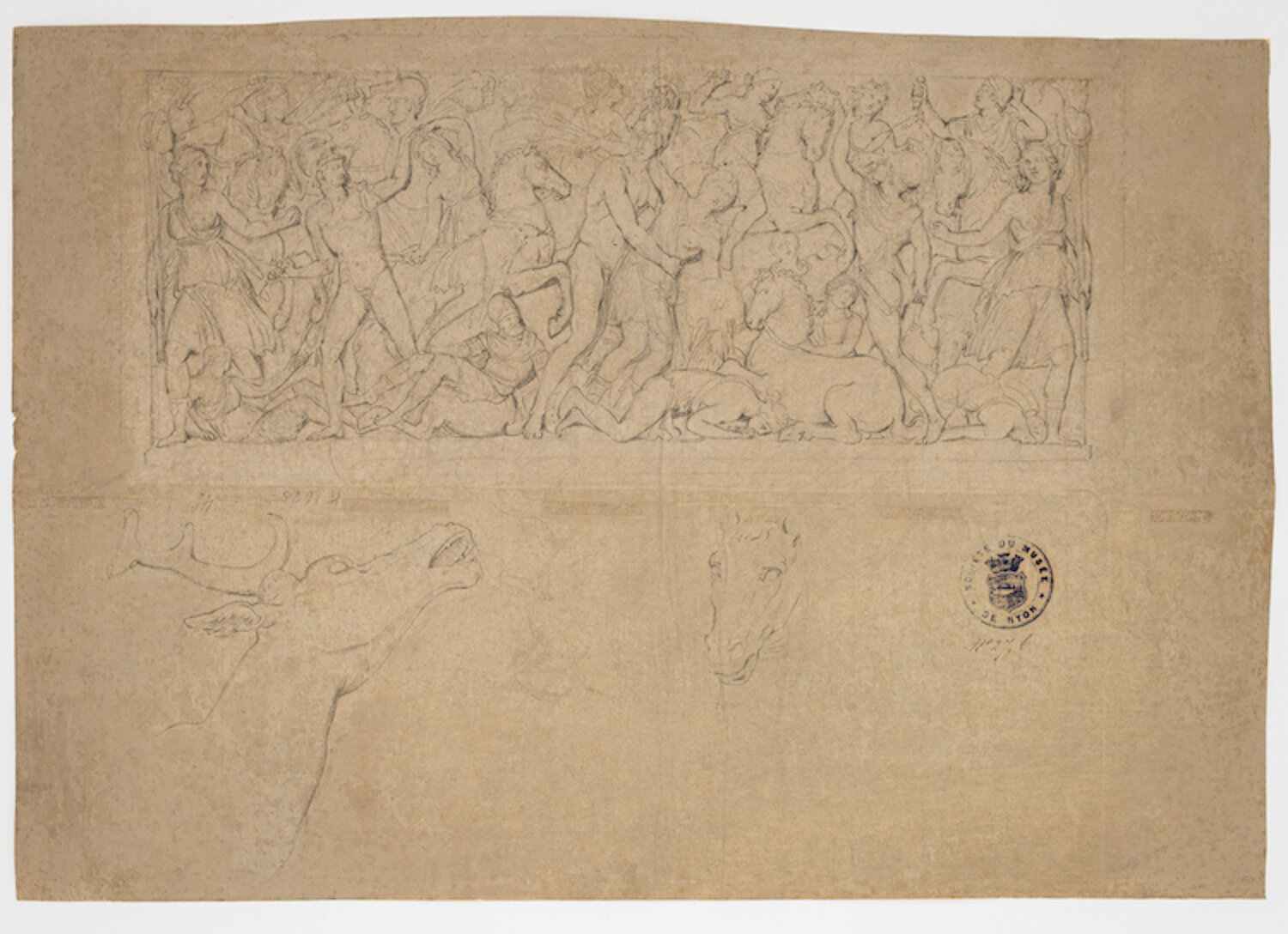
possibly by JOHN FLAXMAN, York, 1755 - 1826, London
Amazonomachia (Museo Pio Clementino), with studies of a deer and horse
Graphite
356 × 514mm (14 1/8 x 20 1/4 in)
-break-
Provenance:
Musee de Nyon;
Private Collection, Classics Scholar, Mid Atlantic;
Sloan and Kenyon;
New York Art Market
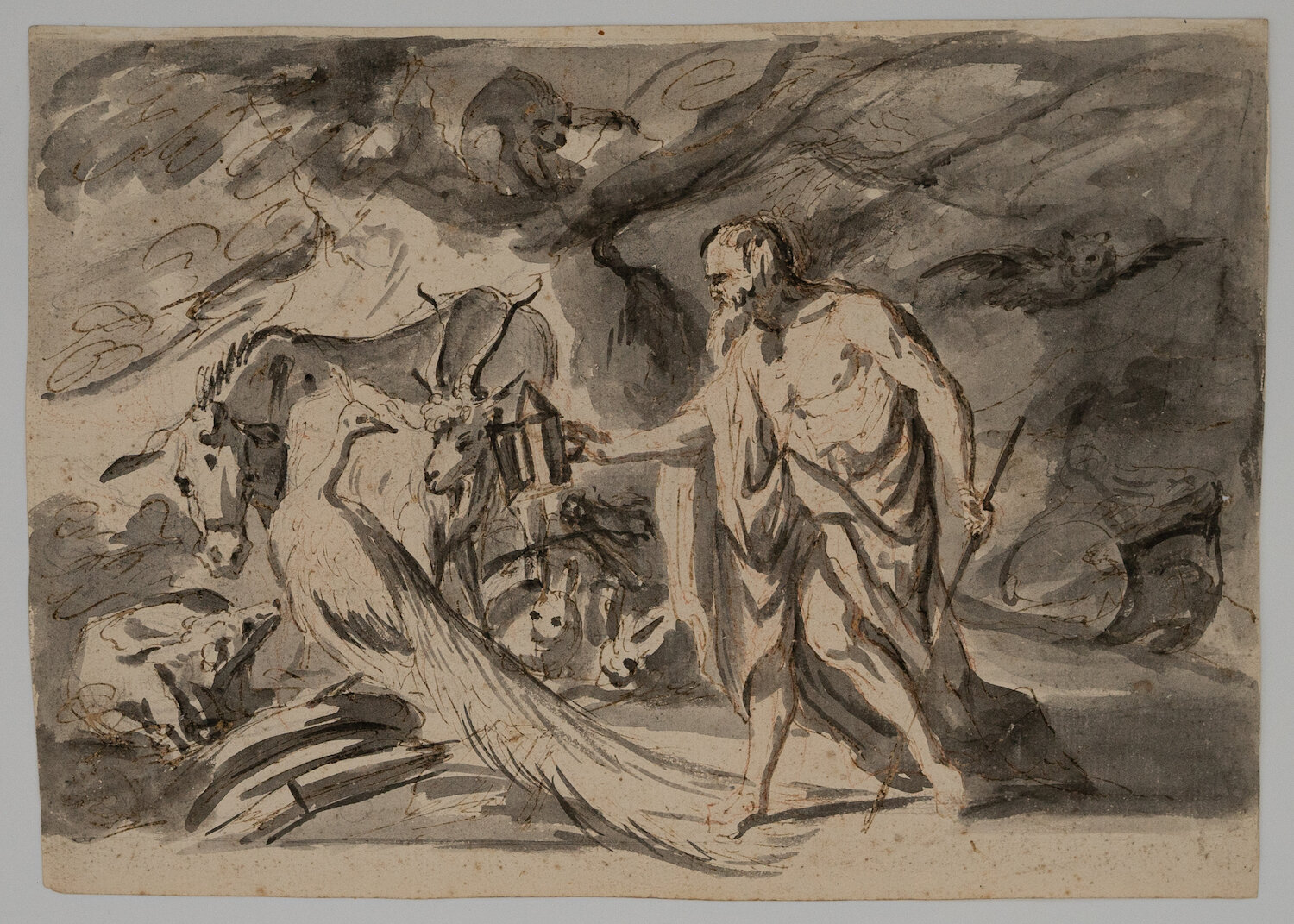
Orbit of CASTIGLIONI, possibly JAN ROOS, Antwerp, 1591 - 1638, Genoa
Diogenes in Search of an Honest Man
Brown pen, black tip of the brush and wash
219 x 311 mm (8 5/8 x 12 1/4 in)
-break-
Provenance:
6/1/2012 Bassenge;
New York Art Market
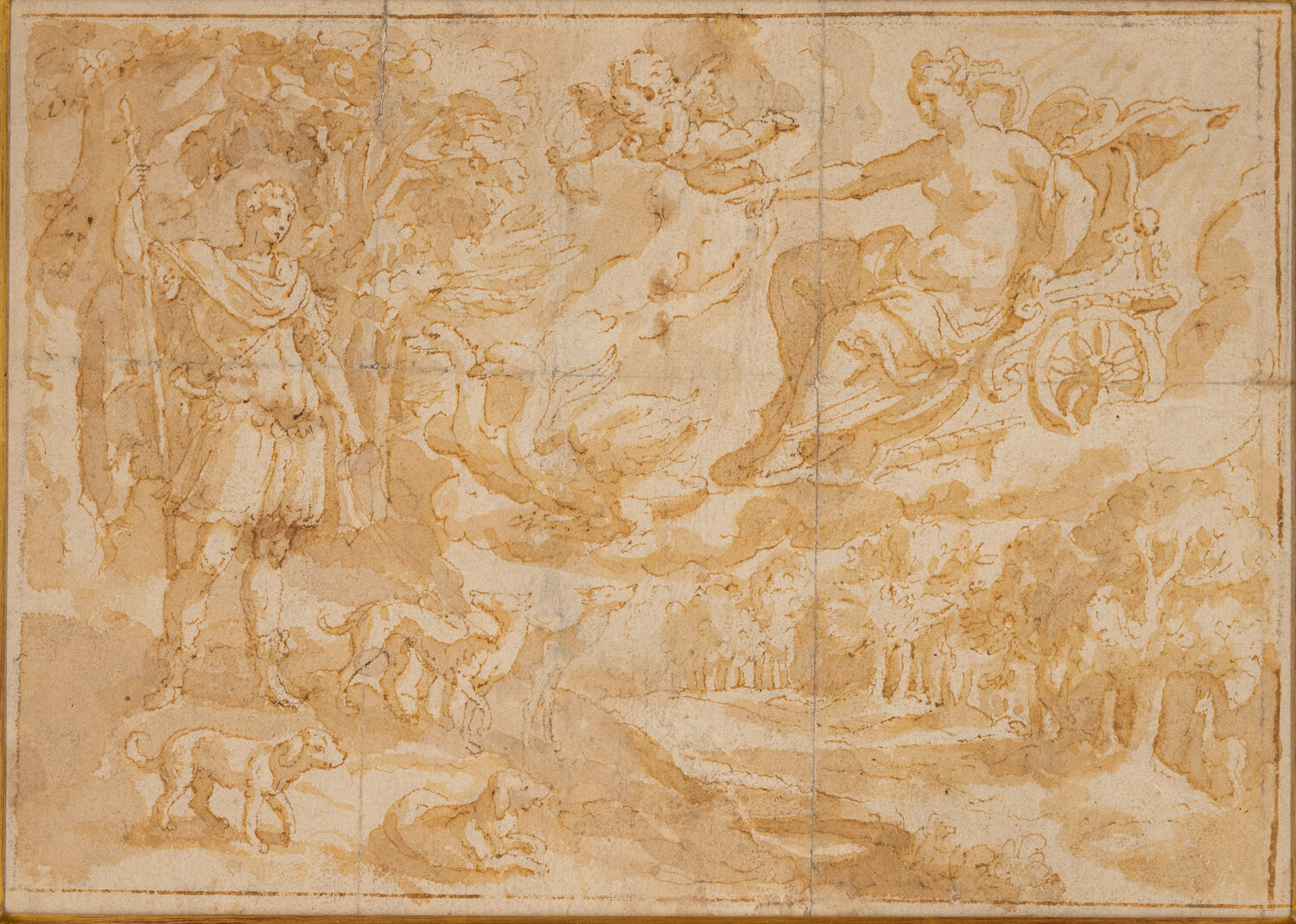
MARTEN DE VOS THE ELDER, Antwerp, 1532 - 1603
Venus and Adonis
Brown pen and ink, and wash
168 x 227 mm (6 5/8 x 8 7/8 in)
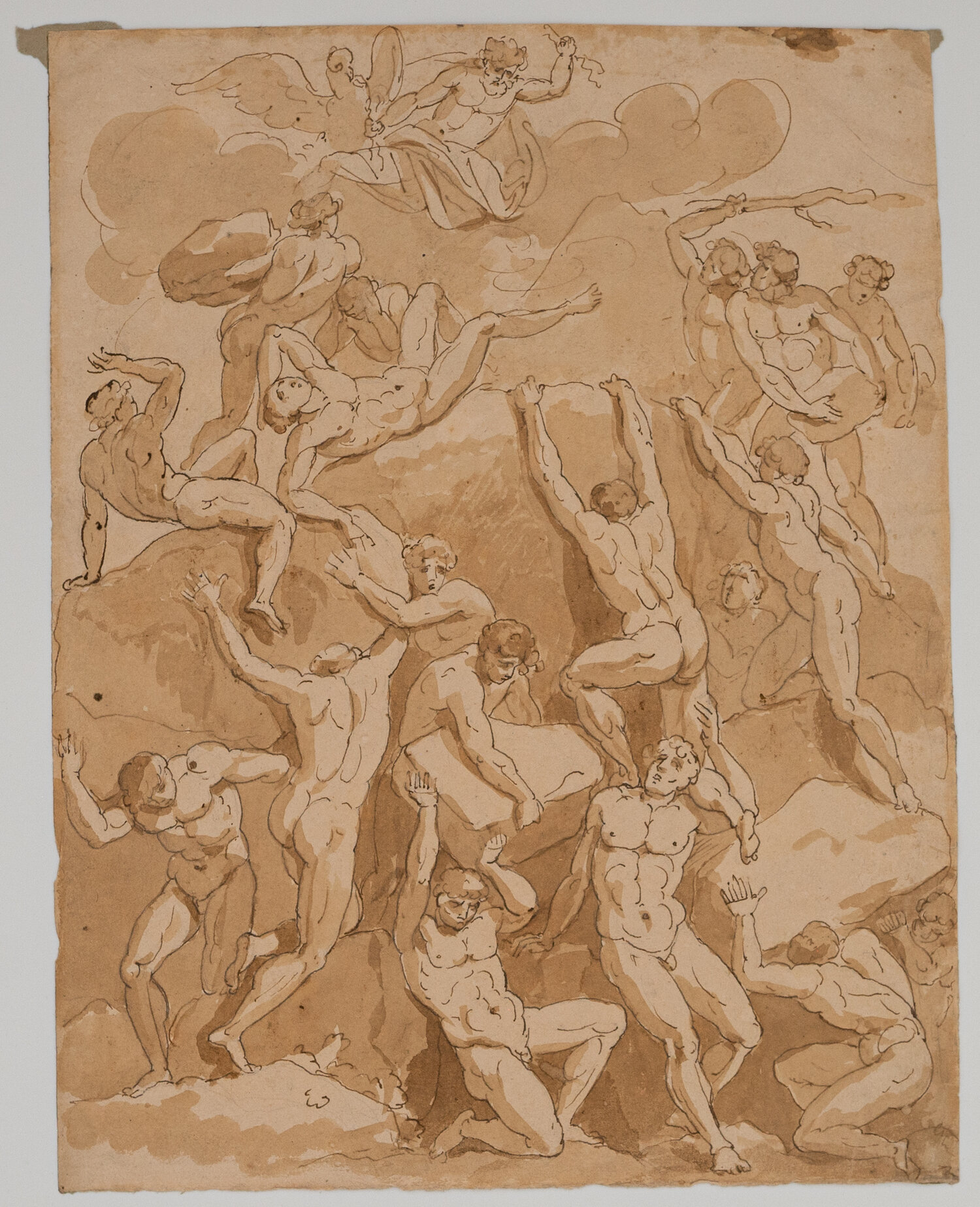
JÓZEF GRASSI, Vienna, 1757 - 1838, Dresden
Der Gigantensturz (Falling Giants)
Pen and ink, and bister
302 x 232 mm (11 7/8 x 9 1/8 in)
-break-